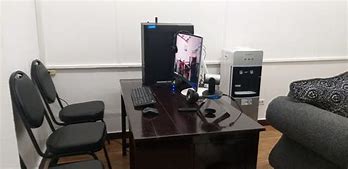Special Measures Assessments for Witnesses and Defendants
Psychological Assessments of the Types of Special Measures Needed for Defendants and Witnesses, for Courts and Police Stations
Special Measures
What are Special Measures?
Special measures are a set of reasonable adjustments that are part of the criminal procedure rules and the civil procedure rules. If you are going to court as a defendant, or you are a witness in court, you might need to consider whether you need special measures. Special measures aim to help you give reliable evidence in court. There are many reasonable adjustments that a court may make following a successful special measures application. Witnesses and defendants with a wide range of psychological conditions, such as learning disability, autism, ADHD, dyslexia, depression, anxiety and mental illnesses are entitled to special measures so they can participate more effectively in court proceedings.
Ask About Our Online Remote Video Enabled Version of This Psychological Assessment. Find Out More Here About the Process Here
The Equal Treatment Bench Book and The Crown Court Bench Book
The Equal Treatment Bench Book and the Crown Court Bench Book provides detailed guidance for lawyers on special measures in court. Witnesses and defendants can find tips for giving evidence in court in the Equal Treatment Bench Book 2019 and the Crown Court Bench Book 2019. Equality Act reasonable adjustments aims to reduce the chance that people with a disability give unreliable evidence in court proceedings.
Special measures law allows people who do not have a disability to obtain special measures in court if they can show that they are a vulnerable witness or intimidated witness. The Vulnerable and Intimidated Witness Police Service Guide is a useful source of information for the police, prosecution and defence
.Tips on Giving Evidence in Court
The top tip for giving evidence in court if you have a disability or are a vulnerable or intimidated witness is to use special measures. The most common special measures are summarised below:
- A video recorded statement played in court in substitution to giving live evidence.
- The judge and the barristers remove their wigs during the hearing.
- Giving evidence in private. The witness or defendant uses a video link in court for evidence, often with the assistance of an intermediary.
- Giving evidence in court behind a screen, so the vulnerable or intimidated witness or the defendant feels less intimidated.
- People removed from the public gallery so the defendant or witness can give evidence in private.
- Use of communication aids such as dolls, and symbol books when giving evidence in court.
- A registered intermediary to support the defendant so that they understand the questions that they are asked in court or the police station.
- A registered intermediary and appropriate adult may attend the police station to help the witness or defendant give evidence.
- Defendants can have their solicitor as well as the registered intermediary present during questioning at the police station. The registered intermediary has specialised training in communication; they may be psychologists or other professionals such as a speech and language therapist.
- Achieving Best Evidence Interviews (ABE Interviews) which use special forms of questioning, props, cognitive interviews and structured interviews.
Vulnerable Witnesses
Vulnerable witnesses are witnesses because of their age, or mental impairment who are likely to produce poor quality evidence. Children under the age of 18, victims of sexual offences and serious crimes are typically defined as vulnerable witnesses. Special measures in court for criminal cases were introduced under Section 16 to 33 of the Youth Justice and Criminal Evidence Act 1999. These procedures were created to support “vulnerable” and “intimidated” witnesses. Special measures help defendants and witnesses have a fair trial and to produce the best evidence during a police interview. Special measures aim to prevent the defendant or witness giving unreliable evidence.
Although special measures are often given for people with disabilities, they may also be given to children, people who have suffered domestic violence or individuals who are otherwise intimidated. As indicated above, these people are sometimes referred to as vulnerable or intimidated witnesses
Special Meaasures Video Link

Special Measures Application Form
An application for special measures for defendants or witnesses must be made using the special measures application form. The lawyer must demonstrate that it is in the best interests of justice to grant the application. If there are grounds for opposing a special measures application the court must be notified of these. The likely grounds are that the individual is not eligible for special measures. Additionally, it may be argued that special measures are unlikely to improve the quality of evidence. The court will typically arrange a hearing to decide whether the application to oppose special measures is granted. In magistrates courts, the grounds for opposing special measures are detailed in the Magistrates Courts (Special Measures Directions) Rules 2002.
What Are Special Measures in Court?
Special Measures for Defendants and Witnesses - Video
Mental Health Reasonable Adjustments in Court
Mental health reasonable adjustments in court can also be made under the Equality Act. The Equality Act also states learning disability reasonable adjustments should be made in court. Are you or someone you know or represent going to court as a defendant or a vulnerable witness? If so, please remember that the Equality Act 2010 also applies to the courts. Courts must make the necessary Equality Act reasonable adjustments by providing special measures for defendants and witnesses with learning disabilities and mental health conditions so they can participate in the proceedings. We work with legal professionals to provide psychological reports to support a special measures application for their clients. Learning disability reasonable disability adjustments will typically require an assessment of the defendants IQ. Individual’s with severe or profound learning disabilities are often unfit to plead or unable to give any live evidence as a witness.
It is good practice for there to be a ‘ground rules hearing’ when an individual has a disability. The purpose of the ground rules hearing is to determine what disability reasonable adjustments are necessary for the full hearing of the case. The solicitor representing the defendant or witness should obtain an expert witness psychologists report to determine what reasonable disability adjustments for the defendant or witness needs to improve the quality of their evidence.
Once the expert witness psychologists report has been produced, the lawyer representing the defendant or witness should then obtain a report from a court intermediary. The court or tribunal will often be referred to as the Equal Treatment Bench Book by the expert witness psychologist. The Equal Treatment Bench Book guides what reasonable adjustments and special measures should be put into place so that people with disabilities can give the best evidence at court.
The special measures (reasonable adjustments) might include reasonable adjustments, such as having a court intermediary, giving evidence in a separate room.
Disability Reasonable Adjustments in Court
Our expert psychologists often recommend any of the following reasonable adjustments:
- Provide an overview of the subject before going into details.
- Deal with each issue in chronological order, avoid jumping around in time.
- Use simple direct language and avoid complex or multiple questions.
- Give the defendant or witness time to respond.
- Do not prompt or press for answers.
- Repeat all rephrase a question when necessary to assist comprehension, without implying criticism.
- Avoid acronyms, metaphors or nuances.
- When reading the information, allow pauses to aid processing and comprehension.
- Check back to ensure understanding.
- Avoid criticism of memory weaknesses.
- Make allowances for sequencing difficulties, for instance, in the recall of numbers or the chronology of events.
- Be aware of the defendant’s or witness’ limited concentration span.
- Be aware that the defendant or witness may experience a mental overload and “shutdown.”
- Arrange for a scribe to be available to take notes while the defendant or witness is in the witness box.
- Counsel cross-examining should not introduce a subject or line of questioning designed to confuse or entrap the defendant or witness.
- Counsel for the defendant or witness should intervene if the defendant is becoming confused or distressed or in need of a short break to restore composure or concentration.
- Because individuals with some neurodevelopmental or mental health conditions frequently do not answer questions correctly, counsel for the defendant/witness or the judge should rephrase the question where necessary.
- Allow at least five seconds per exchange so that the defendant can process the information.
- Individuals with intellectual impairments and working memory problems will probably need their lawyer to ask more leading questions than usual. The judge or their lawyer will also probably need to intervene more during cross-examination on matters of fact.
Special Measures – In the Family Court
Find Out More About Special Measures
To learn more about special measures and what types of special measures are available, please visit the links below.
Special Measures
Special Measures Guidance – The Crown Prosecution Service
What Are ‘Special Measures’?
Special Measures Factsheet
Special Measures – Police Service of Northern Ireland
Being a Witness: The Use of Special Measures
Criminal Procedure Rules Part 18 Measures to Assist a Witness or Defendant Give Evidence
Part 29 Special Measures Directions – Criminal Procedure Rules 2005 No 384 (L.4)
Achieving Best Evidence in Criminal Proceedings: Guidance on Interviewing Victims And Witnesses, and Guidance On Using Special Measures
Special Measures Application Form
Special Measures in The Family Court
Special Measures Application Form Family Court
Practice Direction 3AA - Vulnerable Persons: Participation In Proceedings And Giving Evidence
Vulnerable Witnesses - Family Law Group
I Need Extra Help At Court | Family Court Information
Children and vulnerable adults - Courts and Tribunals Judiciary
Vulnerable Witnesses – Tips for Giving Evidence In Court
Vulnerable Witnesses and Parties Within Civil Proceedings – Current Position and Recommendations for Change: Civil Justice Council
Vulnerable Witnesses In The Civil Courts: Existing Guidance And The IICSA Recommendations
Vulnerable and Intimidated Witnesses - A Police Service Guide
College of Policing Working with Victims and Witnesses
The Use of Intermediaries for Defendants
Equal Treatment Bench Book and Crown Court Bench Book
Crown Court Bench Book Compendium – updated December 2019
Equal Treatment Bench Book 2020
Find Out More About Reasonable Adjustments In Court
Inclusive Justice: A System Designed For All
Discrimination In Everyday Life
Mental Health, Autism & Learning Disabilities in the Criminal Courts
How HM Courts & Tribunals Service supports court and tribunal users with disabilities.
Reasonable Adjustments - Courts and Tribunals Judiciary
People with disabilities: going to court and police help
Provide Reasonable Adjustments for Disabled People
Find A Psychologist Near Me

Advanced Assessments - Psychologists for Legal, Education and Employment
Open Now - 24 hour Service - Open Weekends
We work throughout the UK
UK: +44 208 200 0078 Emergencies: +44 7071 200 344
Advanced Assessments - Expert Witnesses & Psychologists, 4th Floor, 49 St. James's Street, London, SW1A 1JT
180 Piccadilly, London, W1J 9ER
Also at: Westhill House, Highgate Consulting Rooms, 9 Swain's Lane, London N6 6QS
Please do not attend our office if you do not have an appointment
Twitter: @ExpertWitness_
Facebook
We are a part of the Strategic Enterprise Group
